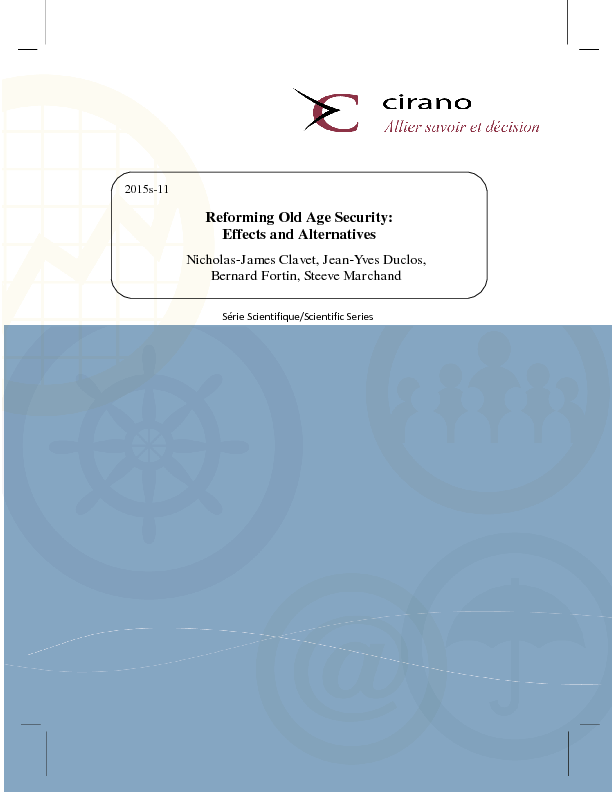Reforming Old Age Security: Effects and Alternatives
The
federal government announced in its 2012 budget its intention to delay the age
of eligibility for Old Age Security and the Guaranteed Income Supplement from
65 to 67 years. By the time the policy is fully implemented (i.e., in 2030),
this delay will have increased net revenues of the federal government by 7.1
billion dollars per year (in constant 2014 dollars), but will reduce net
provincial revenues by 638 million dollars. With constant labour and savings
behaviour, this delay would also increase the percentage of individuals aged 65
and 66 years who are in the low income group from 6% to 17% (for an additional
100,000 low-income seniors in this age group) and would be most harmful to
low-income seniors and to women. Alternative reforms to the Old Age Security
could make it possible to achieve similar effects on public finances without
having such large impacts on the low income rate among seniors.
[ - ]




